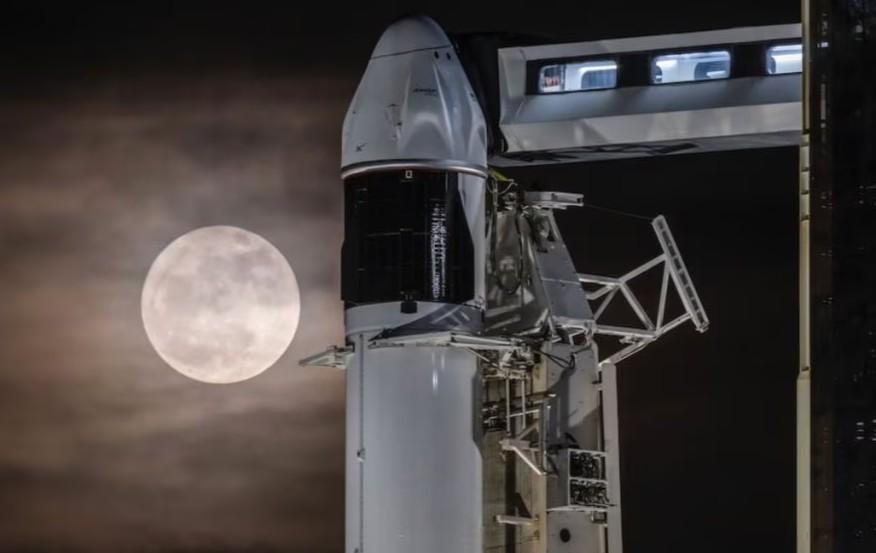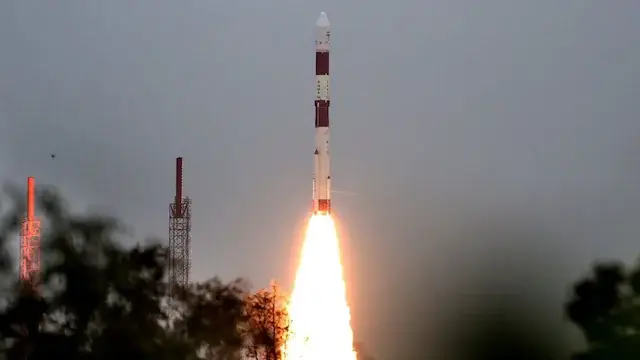
Pichai, Musk & Bezos competing to establish data centres on Moon: Report
The world’s top tech billionaires, Sundar Pichai, Elon Musk, and Jeff Bezos, are reportedly exploring the possibility of storing and processing data on the Moon. According to a recent report by the Wall Street Journal, these industry leaders are eyeing the lunar surface as a potential location for establishing data centres. The report highlights the Moon’s stable environment, low temperatures in certain regions, and open land as key factors driving this push.
The idea of setting up data centres on the Moon may seem like the stuff of science fiction, but it’s an intriguing concept that warrants closer examination. As the world’s data storage needs continue to grow exponentially, companies are constantly looking for innovative solutions to meet this demand. The Moon, with its unique environment, could potentially offer a viable alternative to traditional data centre locations on Earth.
One of the primary advantages of establishing data centres on the Moon is the stable environment it offers. The lunar surface is characterized by low gravity, lack of atmosphere, and extreme temperatures, which can be both a blessing and a curse. However, certain regions on the Moon, such as the permanently shadowed craters near the poles, maintain extremely low temperatures, ranging from -173°C to -233°C. These temperatures are ideal for cooling servers, which is a significant challenge in traditional data centres.
Cooling servers is a crucial aspect of data centre operations, as it helps to prevent overheating and ensure optimal performance. On Earth, data centres rely on complex cooling systems, which consume significant amounts of energy and water. In contrast, the Moon’s low temperatures could reduce cooling costs for servers, making it an attractive location for data centres. According to the report, the Moon’s natural cooling capabilities could lead to significant cost savings, making it a more economical option for companies.
Another advantage of establishing data centres on the Moon is the availability of open land. The lunar surface offers vast expanses of untouched terrain, which could be used to build huge facilities without the environmental concerns faced on Earth. On our planet, data centres are often located in areas with existing infrastructure, such as power plants and transportation hubs. However, these locations are often subject to environmental regulations, noise pollution constraints, and community resistance. In contrast, the Moon offers a blank slate, where companies can build data centres without worrying about these constraints.
The report also highlights the potential for the Moon to serve as a hub for interplanetary communication. As space agencies and private companies continue to explore the solar system, the need for reliable and efficient communication networks will grow. Establishing data centres on the Moon could provide a strategic location for storing and processing data from spacecraft and satellites, enabling faster and more efficient communication between Earth and other celestial bodies.
While the idea of establishing data centres on the Moon is fascinating, it’s essential to consider the significant challenges involved. For instance, transporting equipment and personnel to the Moon would require substantial resources and infrastructure. The lunar surface is also characterized by extreme radiation, which could pose a risk to both humans and electronic equipment. Additionally, the lack of atmosphere and extreme temperatures would require specialized equipment and protective measures to ensure the survival of both humans and servers.
Despite these challenges, the prospect of establishing data centres on the Moon has sparked intense competition among tech giants. Sundar Pichai, CEO of Google, has been exploring the possibility of using the Moon as a location for data centres, according to the report. Elon Musk, founder of SpaceX, has also expressed interest in establishing a human settlement on the Moon, which could potentially include data centres. Jeff Bezos, founder of Amazon, has also been investing in lunar exploration and development, with his company Blue Origin working on a lunar lander capable of transporting people and cargo to the Moon.
The competition among these tech giants is driven by the potential for long-term strategic advantages. Establishing data centres on the Moon could provide a company with a unique competitive edge, enabling it to offer faster and more efficient data storage and processing services. Additionally, the Moon’s proximity to Earth and its potential as a hub for interplanetary communication make it an attractive location for companies looking to expand their presence in space.
In conclusion, the report of Sundar Pichai, Elon Musk, and Jeff Bezos competing to establish data centres on the Moon is a fascinating development that highlights the innovative spirit of the tech industry. While the challenges involved are significant, the potential benefits of establishing data centres on the Moon are substantial. As the world’s data storage needs continue to grow, companies will need to think outside the box and explore new locations and technologies to meet this demand. The Moon, with its unique environment and strategic location, could potentially play a key role in the future of data storage and processing.






